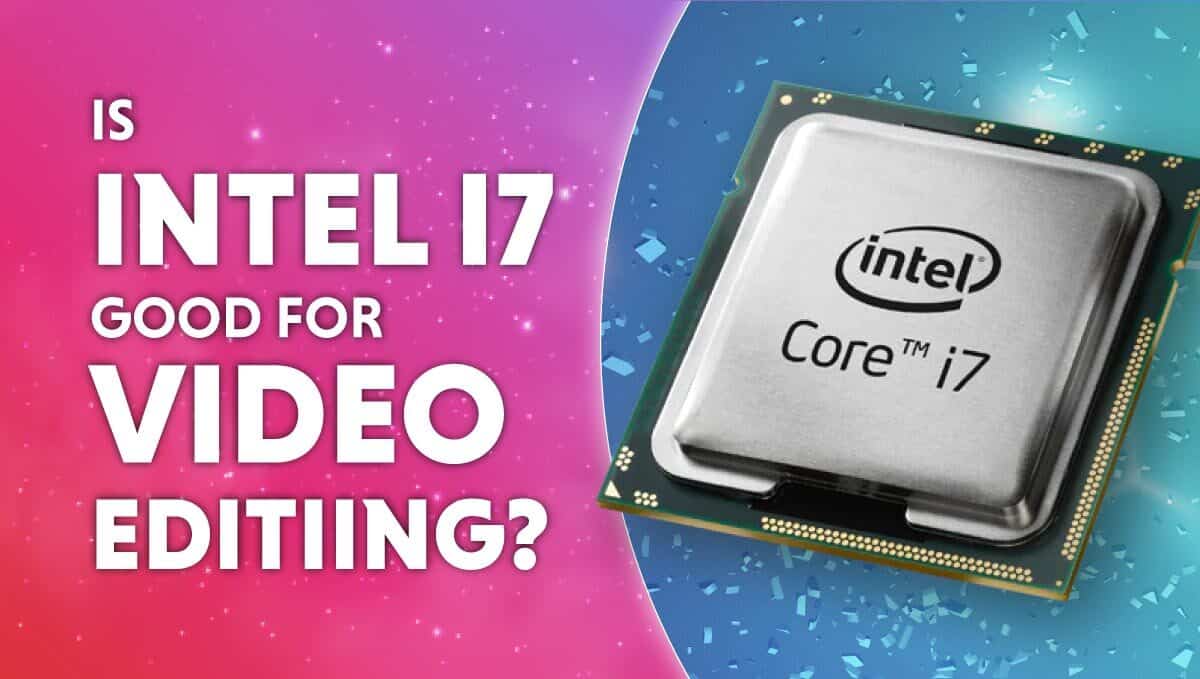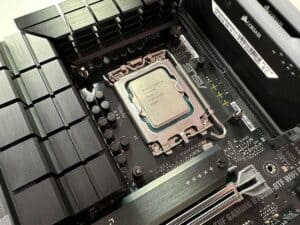Is Intel i7 good for video editing?
Is Intel i7 good for video editing? Let's find out

WePC is reader-supported. When you buy through links on our site, we may earn an affiliate commission. Prices subject to change. Learn more
The Intel core i7 series features the company’s high-end CPUs. Core i7s actually used to be Intel’s very best consumer-grade processors, up until the 7th generation Kaby Lake introduced the i9 CPUs to the world.
Now Read: Is Intel i5 better than i7
Nevertheless, the Intel i7 series is still holding up pretty well though. Let’s find out whether or not it’s good for video editing.
What are Intel i7’s specs?
Core i7 CPUs generations 1 to 7 are hyper-threaded quad-cores, meaning they have 4 cores and 8 threads. Of course, that’s pretty lackluster by today’s standards, but it makes sense when you consider that AMD wasn’t around to give them any competition back then, so Intel had become complacent.
Since AMD began offering its very competitive Ryzen CPUs in 2017, Intel did have to step up its game, and core i7 processors have since seen several generational upgrades to remain viable.
These days, i7 processors have far better specs. The latest addition to the release, the i7-13700K, features 16 cores and 24 threads. That’s massive. The CPU also features a 5.4GHz boost clock, which is equally as impressive.
What makes a processor good for video editing?
Video editing is a CPU-intensive activity that will squeeze every last drop of performance out of your processor. While some video editing applications do attempt to leverage more of the GPU’s hardware, video editing nowadays is still very much a CPU-centric activity.
How good a processor is at video editing and related activities is largely determined by its core clock and thread count.
A CPU’s core clock is essentially how many instructions it can execute in a second. In other words, how fast it “processes” data. The higher, the better.
Thread count, on the other hand, influences how many of these instructions the CPU can execute in parallel. Having a higher thread count increases the processor’s capacity to multitask.
But – there’s another benefit, one specific to workloads just like video editing. If a single task can be broken down into several distinct chunks and fed to multiple threads, it will obviously take less time to complete. That’s why a higher thread count is useful for video editing.
Is the Intel Core i7 good for video editing?
Unfortunately, it’s difficult to give a generalized statement here, as core i7 processors vary considerably over generations.
So, to be a bit more nuanced, any core i7 processor that’s 10th generation or higher will be excellent for video editing.
That’s because 10th generation and above core i7 CPUs have a minimum of 16 threads (and as many as 24).
As we discussed earlier, having a high thread count reduces the time a processor will need to complete video editing-related tasks, such as rendering, file compression, and file transfer.
They also have somewhat higher clock speeds than previous generations, which further increases performance in video editing applications.
Core i7 CPUs generations 8 and 9 are pretty mediocre. They can suffice as a video editing CPU, but I recommend simply going for a newer i5 CPU instead. You’ll get better performance at a lower price.
Core i7 CPUs generation 7 and below have only 8 threads, so they’re pretty poor at video editing. You will likely have to endure long wait times and painfully inefficient edits. I can’t recommend them as a viable option if you’re a video editor.





